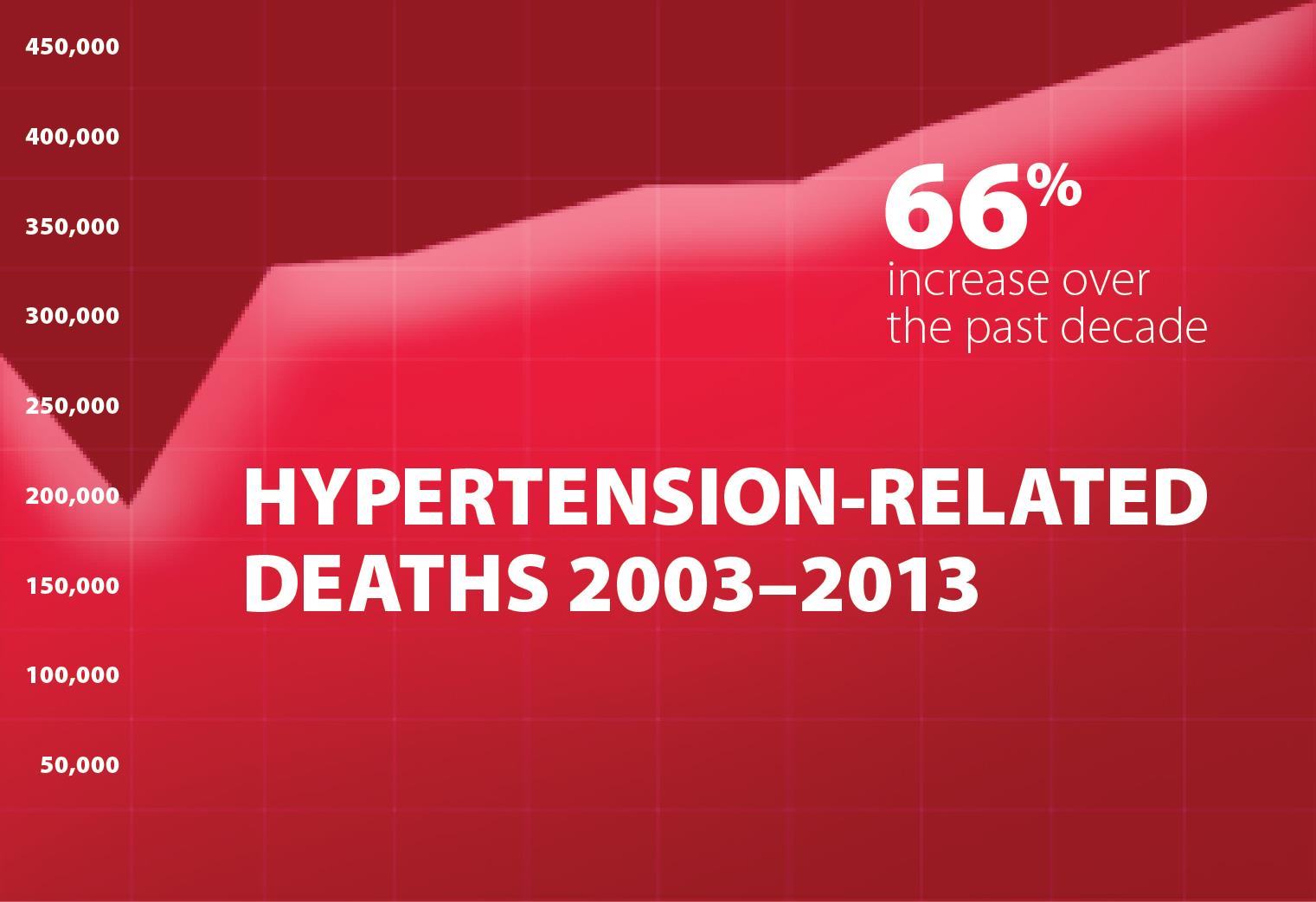The number of hypertension-related deaths in the United States increased by 66 percent over the past decade, according to new data from the Centers for Disease Control and Prevention (CDC). To put that in perspective, the number of deaths from all other causes combined increased only 3.5 percent during that period, pointing to an urgent need to better control high blood pressure and improve patient outcomes.
A look at the problem
The March CDC report also revealed that from 2000 to 2013, the rate of deaths related to hypertension increased by 23.1 percent, while the rate of deaths from all other causes combined actually decreased by roughly the same percent.
The CDC data also highlights disparities in hypertension-related deaths. In 2013, the death rate was highest among the non-Hispanic black population, compared with non-Hispanic white and Hispanic populations.
Tools for physicians and care teams
This data raises an alarm about the urgency of better addressing high blood pressure in the United States. That’s where the AMA’s Improving Health Outcomes initiative comes in.
Through this initiative, the AMA and participating physicians and care teams are working with researchers at the Johns Hopkins Armstrong Institute for Patient Safety and Quality and the Johns Hopkins Center to Eliminate Cardiovascular Health Disparities to develop and test evidence-based blood pressure recommendations.
To address hypertension disparities, the AMA is collaborating with the Johns Hopkins Center to Eliminate Cardiovascular Health Disparities to leverage the work of Lisa Cooper, MD, who is leading one of the first studies to address hypertension using multiple quality improvement approaches and combining community-based participatory and implementation science principles.
What you can do now
National High Blood Pressure Education Month is coming this May—watch AMA Wire® next month for ways to improve your patients’ hypertension outcomes.
In the meantime, here are some additional resources to help you improve your practice’s hypertension management:
- Learn how to get the most accurate blood pressure measurement.
- Read the three questions you should ask patients when measuring their blood pressure.
- Hear what other physicians are doing to control hypertension in their practices.
- See how physicians can help patients manage blood pressure outside of office visits.
- Discover how a novel approach to hypertension care also can address disparities.




